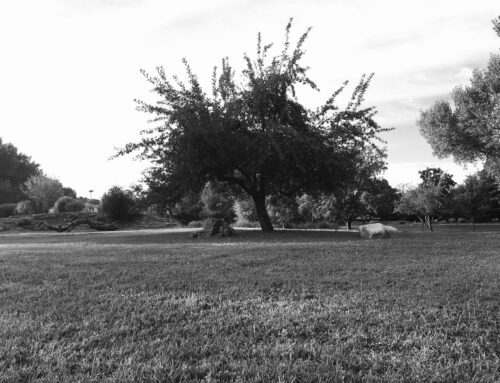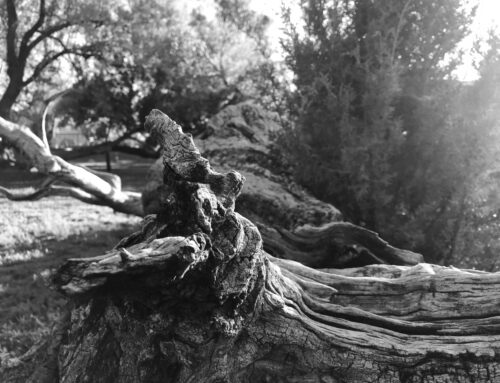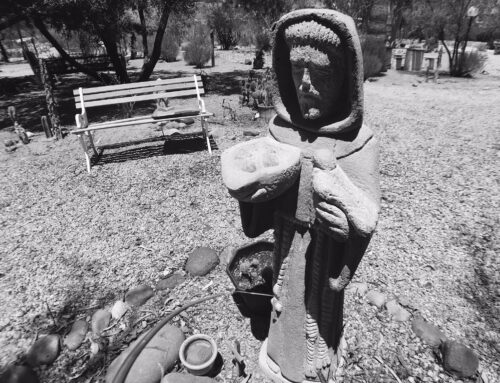“I am a Christian, not because someone explained the nuts and bolts of Christianity, but because there were people willing to be nuts and bolts.”
― Rich Mullins
This is the paradox [of discipleship]: accompanying the unveiling of Jesus there is a veiling of us in the same moment, and therein lays the real glory of transformation: the glory of hiddenness. – Graeme Sellers
I’ve been thinking a lot about how the Christians who have shaped me the most significantly are not the ones who are outwardly polished, living an ideal ‘untainted by the world.’ Actually, in numerous accounts, I’ve found those to be the ones with great potential for damage, because they tend to project expectations on others the most. Rather, the ones who have shown me Jesus the most are the ones who have been broken to the point of utter honesty. Not pulling punches, and not softening the blows of their own demerit. They are the ones who have (time and time again) shown me the unbridled grace that flows from the reckless love of God. The notable thing, though, is that they aren’t the type of personalities that get all the fame and attention -they don’t pursue it. However, they’ve made a tremendous impact on my life, and the lives of others.
A book that I highly recommend is by one of these friends. My friend Graeme Sellers released his book The Dangerous Kind in 2012, and in it he speaks about this hiddenness in the Christian as they follow Jesus. He wrote:
The push to be seen, to be somebody, to have power and influence-these are alien to the strategy Jesus lays out for His closest friends. “You know how it is in this world,” Jesus says, “how leadership is reduced to lordship, how those who are in authority demonstrate it by controlling, manipulating, and punishing those under their thumbs. Well, that’s one way to do it. But it’s not the way you’re going to do it. Lead and go low. Lead and serve. Lead and give preference to the last. Lead and love. Here’s the lowdown: leaders take love seriously but they take themselves with a grain of salt. They hold the hurting, rejected, lonely, damaged. They hold more hearts and more hands, not more press conferences” (p. 80-81).
Jesus had much to say about hiddenness, which makes sense because at the heart of God’s perspective of leadership lies the truth that man looks at the outward appearance, but God looks at the heart (1 Samuel 16:7). In the dark nights of the soul, it is good news to hear that the One who sees everything sees you there in the secret place (Matthew 6:1-18). Not only does He see you, but He is actually filled with emotion when you run to Him in raw desperation. He sees you, and as Hebrews says to us: He’ll reward you (Hebrews 11:6). And if the only reward you long for is to experience Him? “Blessed are those who hunger and thirst for righteousness, for they will be filled” (Matthew 5:6), “ask…and it will be given to you; seek, and you will find; knock, and it will be opened to you” (7:7-11).
In the economy of the Kingdom of Heaven, when we choose to lay down (let go of the hunger for) notoriety and platform, a shift happens, and what often looks like downward mobility in the eyes of the world is often Heaven’s upward mobility. A Kingdom promotion that nobody but you and the Lord may ever see, but rest assured: you have the audience and concern of the one opinion in the universe that matters. This also makes sense, because to reach those whom Jesus would reach (and I believe, wants to reach through us) is often to court the unpopular, the overlooked, and the bottom of the barrel. This is the Good News to a broken world.
So, the questions which I have been asking myself, and believe are good questions for us all to ask, are:
- Are you willing to be a nobody in the eyes of the world? Not that you will be necessarily (but it’s likely, if you want to have Kingdom impact), but would it be okay if you were?
- Is Jesus really enough? I’m not asking your head-knowledge, rather, in the seat of your emotions: is Jesus enough? If all else was stripped away: job, title, family, financial standing, ministries, accolades and anything else that may define you otherwise. It’s a tough question to grapple with, but we need to wrestle with it. We need to answer it. When we set on the course of the answer to that question being “yes,” I believe we’ll see the Lord accomplish great things through our lives. Things measured to be great by the measuring stick of Heaven.
When we say ‘yes’ to the lordship of Christ, it isn’t on our terms, it is on His. Otherwise, it wouldn’t be called lordship. I think it comes down to trust and knowing (experientially) the love of God. Trusting that God has our present/eternal well-being in mind: that He delights in us, and that His love is nothing like the plastic, breakable love of humanity -it is extravagant, unconditional, and never-changing toward us. Founded on that love, we can build Christian leadership – or rather our follower-ship of Christ. As Henry Nouwen reminds us in his book The Wounded Healer, “The beginning and end of all Christian leadership is to give your life for others” (1979, p. 72). It’s simple, but not easy. This isn’t just for the MDivs and church professionals -it is for anyone that would follow in the footsteps of the Nazarene. It means really knowing our identity in Christ. It means being abandoned to the act (and reality) of Him being more -and us being less. It is for the ragamuffin world changers who are world changers because they live within the vibrant revelation of the grace of God at work in their lives.
Reference:
Nouwen, H. J.M. (1979). The Wounded Healer. NY: Doubleday.
Sellers, G. (2012). The Dangerous Kind. Gilbert, AZ.: Self Published.





